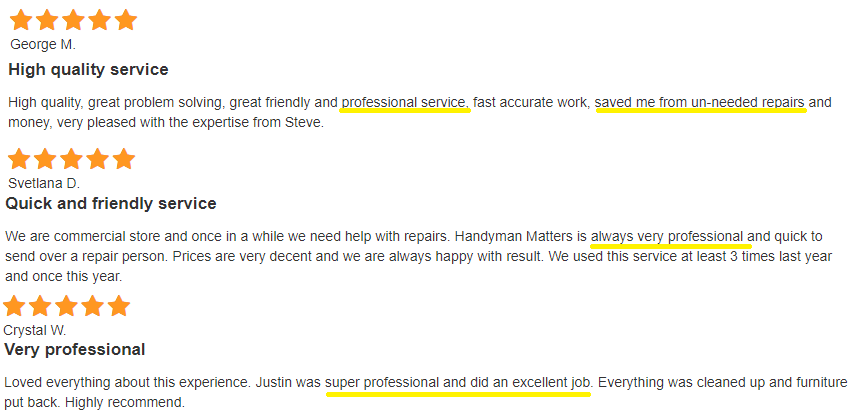How to Discover Your Point of Difference (And Avoid the Crowd)
In my opinion the most important step any business can take is to discover a way to be different.
The market needs a way to compare and differ and if you don’t give them one they’ll default to price comparison.
Different is doing something like no other. Different is creating your own category. Different is exceeding people’s low expectations. Different is marketing in a way that makes people take notice.
Most of the time business owners seem to be in the sea of sameness and this is what leads to low profits and that sinking feeling that somehow your business is stuck.
Now, if I’ve got your attention let me add this. If you want to succeed in business you have one job — find a way to demonstrate, highlight, communicate, and propose that you are different in a way that your ideal client values.
Okay, enough talking let me show you the step-by-step approach to discover your point of difference that ideal clients value and what sets your business apart from every other business that says they provide what you provide, offer what you offer, make what you make or do what you do.
Step #1. Identify your ideal client
The first step in this process of discovering your point of difference is to identify your ideal client. I wrote about Finding Your Ideal Clients here on Instagram. Within every target market is a segment of people who you are best suited to serve, who value what you do and are very profitable for your business. This group of buyers represent your ideal client.
Create a spreadsheet of your existing clients with a focus on segmenting your client base between normal accounts and your most successful (ideal) accounts. Your most successful or ideal accounts should have the following two key behaviors: they are profitable and also talk about your business to others.
Next interview 5 to 10 of these ideal clients, either in person or over the phone, to discover what they like about your product or service or experience. You need to dig in and find that way of doing things that your ideal clients truly value, what’s going on your industry that frustrates them or how to turn the way your industry have always done it into an opportunity for innovation.
Step #2. Ask your ideal clients these questions
The greatest source for your different strategy is your ideal clients.
I know you know what sets you apart from the crowd, but your customers know what sets you apart in the ways that are important and valuable to them.
Take Note: you’re not looking for quantitative data here, you’re looking stories that offer insight into what really makes your business different. From experience, you will need to use follow-up statements such as — “Awesome, we provide high quality service, what do you mean?.”
- Why did you decide to hire us or buy from us initially? (This question helps you focus in on your marketing. Are customers receptive to your online presence, advertising, promotional efforts, message and sales process? Discovering what is effective is the kind of insight that can pay huge dividends.)
- What’s the one thing we should never stop doing? (Find out what your customers really value about you, your services/products and your company. This question lets you discover your true differentiator. Is it your friendly staff, the way they get results, your 24 hour responsiveness or the way you clean up after every job?)
- What’s one thing we could do to create a better experience for you? (The real value in this question is in your customer identifying or describing something your company, service or product could do to provide added value or just do 10% better. )
- If you were to refer us what would you say? (I believe instead of just asking your customers would they refer you, get some insight into the words, phrases, and examples they would use when referring your business. This can help you further differentiate away from competitors and open up opportunities for educating your strategic partners.)
- What would you Google to find a service/product like ours? (If you want your business to be easily found online by future customers, you need to know everything you can about the key words and phrases they use when looking for services and products like yours. This is one of the most important aspects of your lead generation efforts.)
Step #3. Peek at testimonials, recommendations and reviews
Testimonials and reviews are another place to go look for insight into your point of difference. If you’re getting any kind of third party proof, you’re going to find that people will reveal the details of the experience they had and what they value.
Here’s a great example from a client of ours. Note the highlights in each review state about the same thing. Their ideal clients give us a direction for their point of difference.

Step #4. Work with insights and stories that matter
From your differentiation interviews and research you should have some insights and stories to work with. Don’t underestimate the power of simple things. Most likely your clients value the little things you do.
- returning their phone calls
- helping them look at problems in a different way
- remembering their name
- helping them consider all the possible approaches
- cleaning up after you’re done on a project
- sharing new ideas, tips, and tools with them
- arriving on time on
- talking in plain English not industry jargon
- helping them know where potential landmines could be hidden
- sending weekly updates
- doing what you say, when you say it
- teaching them about trends that will affect their business in the future
- responding back in 24 hours
- frequently challenging them to think bigger
- being more of a consultant than a salesperson
- keeping them in the loop
Do not dismiss these little things as unimportant and worthless for communicating your point of difference.
I once worked with a repair contractor that felt their fast response time was the key and while their clients acknowledged this they admitted that it was their fast repair time that they saw the real value and difference in. Fast response doesn’t keep the manufacturing plant up and working, fast repairs do.
Contact your marketing consultant at Indispensable Marketing
If you’re a small service based business that needs help with finding a core difference or your business’s online presence on Google and other search engines, at Indispensable Marketing we can help. We offer marketing strategy consulting, marketing audits, monthly marketing packages, consultations, exploratory calls or monthly local SEO services. Contact us for more information.




